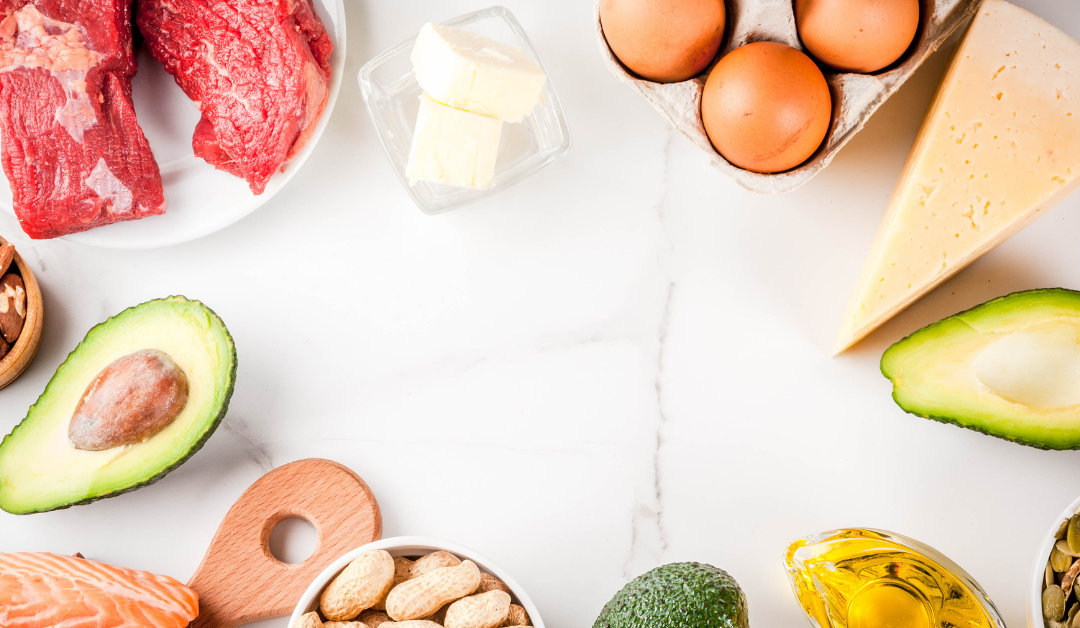Earlier this year, I was fortunate enough to have the opportunity to deliver a talk to the good people at Sidley Austin LLP, on how to manage work-related stress with physical activity and diet. The talk was well received, plenty of people attended, and the audience posed some excellent questions during the Q&A at the end. One of those questions is going to be the subject of this article. It is a question that I get asked frequently by friends, by family, by clients and colleagues. Given that this topic comes up so often I thought it would be worth shedding some light on one of the most confusing aspects of losing weight by answering the following question;
“What is the best diet for losing weight?”
Well, in an attempt to answer this question, researchers have conducted hundreds of studies investigating the effects of diets with different macronutrient ratio’s (i.e., protein, fats, and carbohydrates) on weight loss. The results of these studies, for the most part, have been a bit of a mixed bag, with no single approach to dieting emerging as the most effective way to lose weight. However, a 2013 article in the Journal of the American Medicine Association, seems to have finally provided us with a conclusive answer. In the paper, titled ‘A Call For An End To Diet Debates,’ researchers crossed examined the results of 4 different meta-analyses of diet comparison studies, each one summarising the results of 13-24 trials. During their research the authors found that;
“Numerous randomised trials comparing diets differing in macronutrient compositions (e.g., low-carbohydrate, low- fat, Mediterranean) have demonstrated differences in weight loss and metabolic risk factors that are small (i.e., a mean difference of <1 kg) and inconsistent.”
In effect, what the authors discovered is that despite many claims to the contrary, there is no single ‘best diet’ for weight loss or improved health. Now, this might come as a revelation, quite a shock in fact, if you believe much of the marketing hype that surrounds commercial diets. However, it makes complete sense when you consider it from the perspective of nutritional science and how fad diets work.
Whether they restrict your intake of certain foods, nutrients, or the times at which you eat, all diets work in the same way; by reducing your daily calorie intake and creating a negative energy balance. How you create a negative energy balance, whether it’s by eating a low-carb, low-fat, paleo or vegan diet doesn’t matter. All that matters is that you consume less energy than you expend so that your body is forced to mobilise its reserves of fatty acids to meet its daily energy demands.
Think of it like this; our diets are made up of three nutrients protein, fats, and carbohydrates, with each one accounting for approximately one-third of your daily calorie intake. Remove any one of these nutrients from your diet, and you reduce your daily calorie intake by a third by default. Because the size of the calorie deficit is more or less uniform across all three nutrients, it seems logical to expect that the rate at which they produce results will also be the same; which is exactly what the JAMA study shows.
Interestingly, the authors also found that; ‘Adherence, i.e. the degree to which participants stuck to their diet and physical activity program, was shown to have a much greater effect on their overall level of results.’ Now, this might seem obvious after-all, even the most ill-informed amongst us should realise that the diet that you stick to, is better than one you don’t. However, the implications of these findings should radically alter the way you think about choosing a diet and how you structure it. That means that rather than selecting a diet based on its core tenets or purported health benefits, you should choose a diet based on how easy it is for you to follow that diet in the long term.
So, what can you do to make your diet easier to stick too? Well, in the paper, the authors make three recommendations for increasing dietary adherence. They are;
- Following a weight loss diet that helps to reduce the hunger and cravings that are associated with dieting.
- Tailoring your diet to so that it meets both your dietary preferences and nutritional requirements.
- Self-monitoring your food intake.
While the authors considered the three strategies above to be the most effective ways to increase dietary adherence, this list is by no means exhaustive. There are numerous other strategies, both nutritional and behavioral, they can be used to improve your adherence to your weight loss diet. For beginners, this doesn’t have to be anything more complicated than following a regular exercise program, getting enough sleep, and drinking plenty of water.
Closing
At the time of writing this article, there are currently 150 different commercial diets available to the public which, like all consumer products in retail markets, are competing to be the market leader. This abundance of choice, coupled with the often contradictory marketing claims made by the promoters of these diets, drown out the public health message and sow confusion in the minds of the general population. This makes it extremely difficult for experts, let alone the layperson, to discern which diet is the most appropriate for them. Fortunately, through years of painstaking research, science has provided us with an answer to the question ‘what is the best diet for weight loss?’ and ended the diet debate once and for all.
No other factor, whether it be it macronutrient ratio’s, nutrient timing or meal frequency has shown to have more of an effect on results than adherence. With that in mind, choosing a diet that is easy to adhere too long term should be high in the list of your priorities when embarking on your fat loss journey. If you’re struggling to find the right diet to achieve your goals, contact me to arrange a free 30-minute consultation. We’ll do a thorough analysis of your current diet and identify what diet plan will best for you based on your goals, needs, and present lifestyle factors. All you need to arrange your free consultation is to fill out this form and send it back to me.


